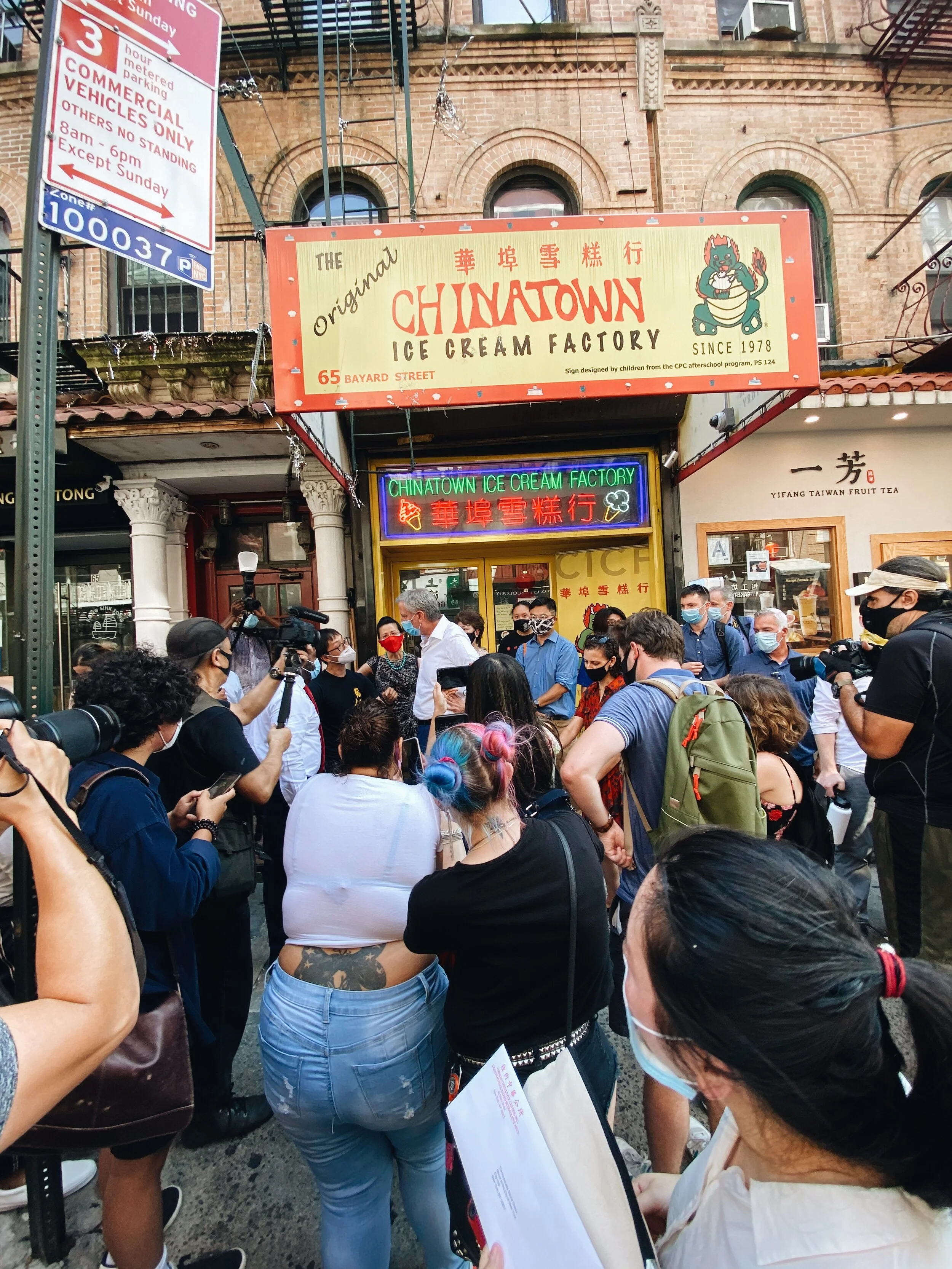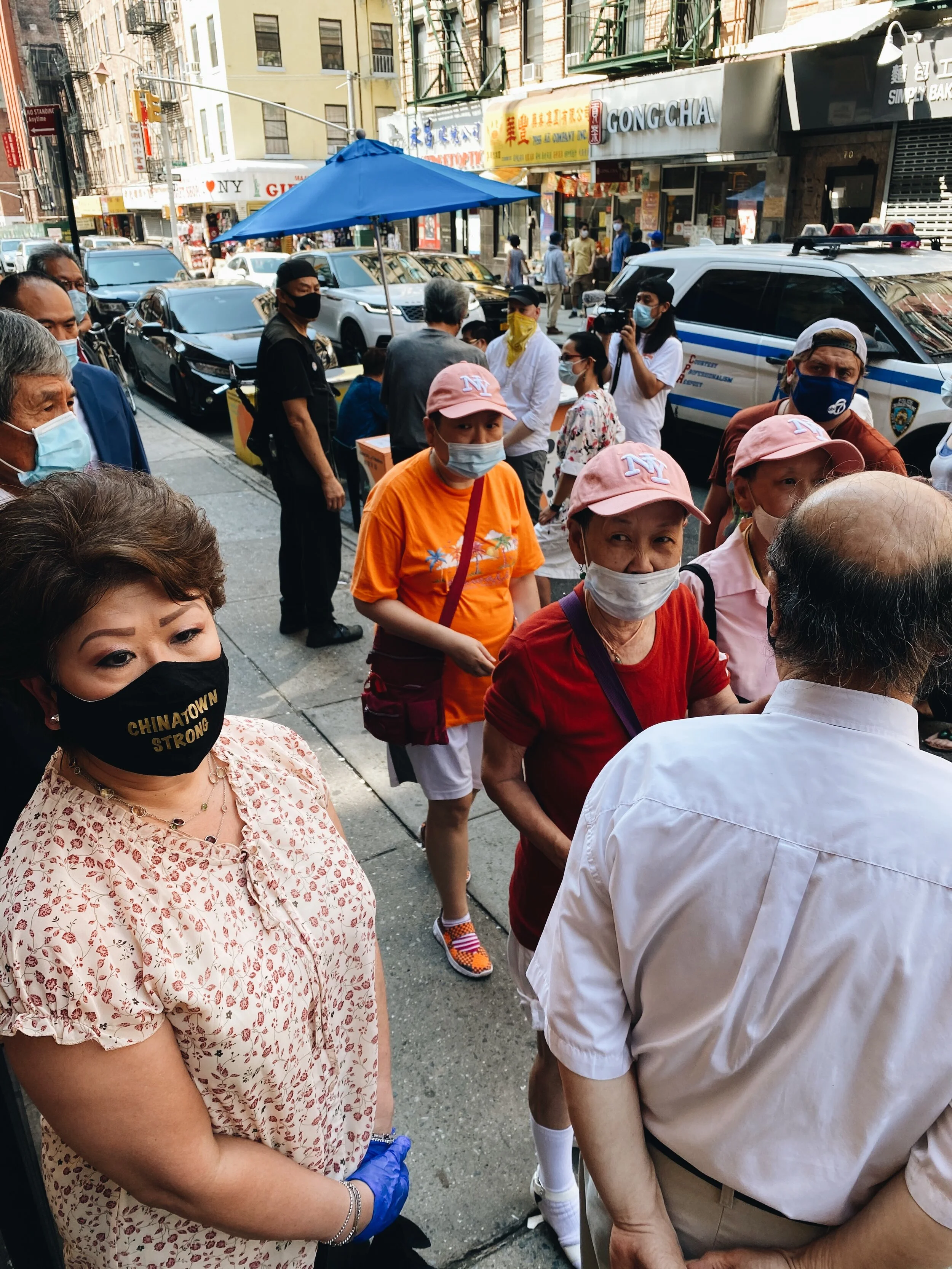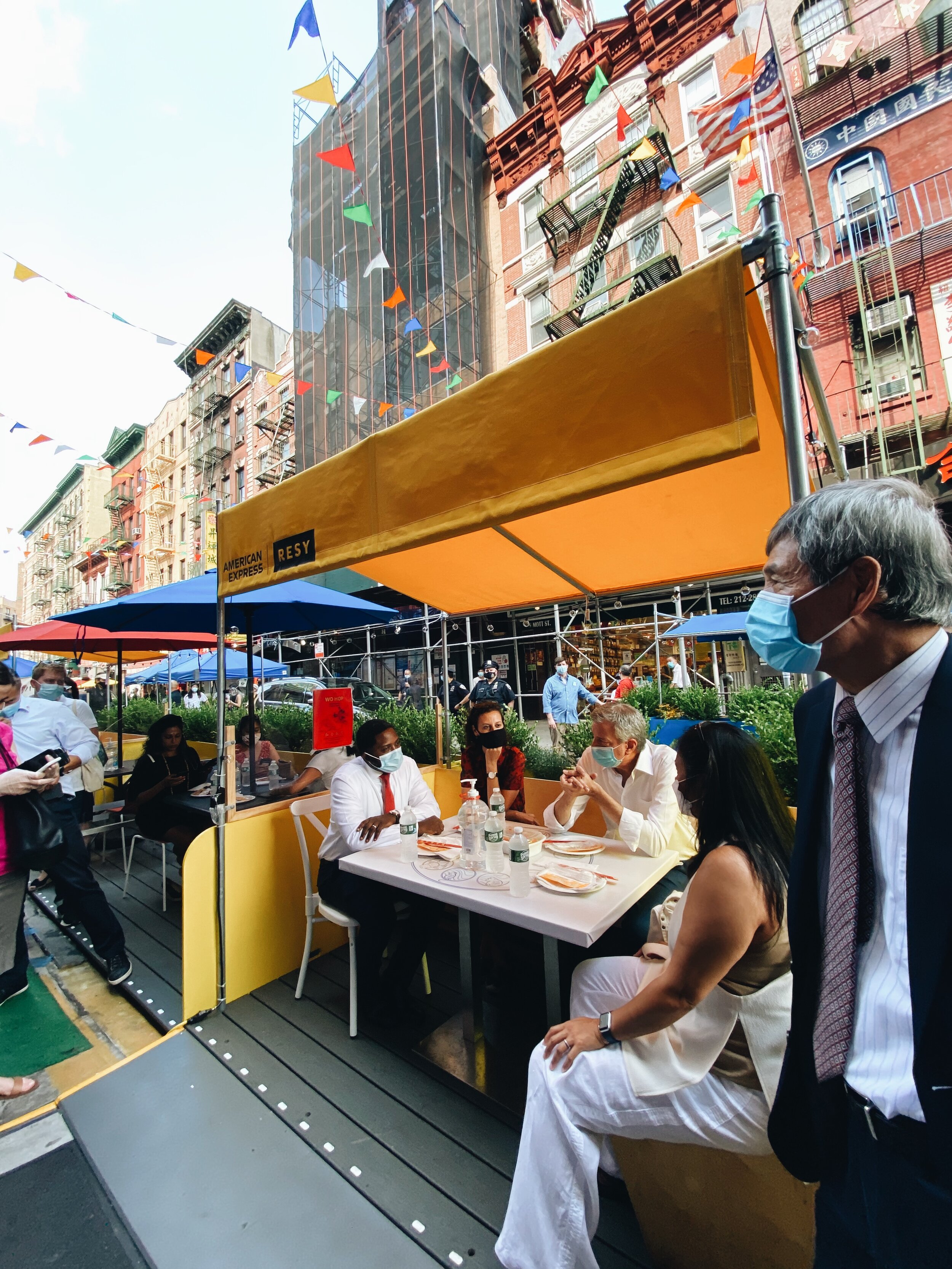Chinatown Continues to Cope with Racism and Lack of Resources During Coronavirus
Americans have normalized eating pigs, fish and cows—and conditioned people to agree that dogs and cats should not be consumed—but scorn East Asians for their traditional foods, writes Canal Street News student journalist Areum Jo.
On March 16, Mayor Bill de Blasio announced the closing of schools due to the coronavirus. That day, my friend and I were heading home from lower Manhattan on our usual route: take the 2,3 train to Penn Station, then take the Long Island Rail Road to our respective stations. We hopped onto the subway and sat down as we always did for the past four years, the familiar orange-and-yellow monochrome seats and the musty subway cars—with an exception for that day in March.
Due to the growing awareness of the virus, many people sat far apart from each other. As soon as my fellow high school friend and I sat down, however, we were met with racism and disdain. New York City is a place of tolerance and cultural diversity—or so I thought—until an older white lady in front of us immediately covered her face and moved to the opposite side of the car. She consistently stared at us in disgust, making us feel out of place when we were already worried the coronavirus would devastate New York.
Previous to this encounter, I heard countless stories of racism against Asians—even before the coronavirus outbreak in NYC. Because the coronavirus originated in Wuhan, China, many in the United States started to associate the virus with East Asians, and their consumption of bats. This led to unfair racism against Asians for consuming “exotic animals that should not be eaten,” when America has normalized eating pigs, fish and cows—and conditioned people that dogs and cats are domestic animals and should not be consumed, leading to scorning East Asians for their traditional foods.
It comes as no surprise to me that restaurants, especially in Manhattan’s Chinatown, are seeing a slowing of business-as-usual. In attempts to attract business, many have offered irresistible deals for consumers like free delivery and BOGO—buy one get one. Meanwhile, articles by The New York Times and other notable outlets have continuously praised restaurants for reaching out to the homeless population, catering free food and providing supplies for frontline workers. How do they have the means to do this? How is the pandemic affecting the homeless and how will charitable giving directly affect them if businesses will run out of resources to support the most vulnerable?
Local advocates advertise the message of “Chinatown strong” while calling on City Hall for help. Photo by Alexandria Misch for Canal Street News
People who do not have adequate housing and resources are experiencing a harsher reality during this pandemic than others and are much more vulnerable to the virus. There are over 59,000 homeless people in NYC alone. Living on sidewalks where thousands of people walk by, especially in the former epicenter of COVID-19, it is much easier to contract the virus. Hand-washing alone can lower the risk of contracting the virus by 16 percent, but the homeless lack a place for them to properly sanitize and clean themselves, much less access to healthcare. Because of the lack of resources available, the homeless are more prone to becoming victims of the coronavirus. Besides the harsh realities of the pandemic, especially for the homeless, people forget the obvious obstacle. Many people who lack a roof over their head also lack food and drinks for survival. Living off of donations on the streets, it is very difficult for the homeless to retrieve refreshments. It is particularly hard when fewer people roam the streets and more people are wary of sharing food. However, businesses in Chinatown did not let that stop them from contributing to the homeless.
Patrick Mock, a grocer at 46 Mott Street in the heart of Chinatown, has decided to focus more on what needs to be done than the racism in Chinatown. He works at the front, interacting with customers frequently. Mock distributes masks to the homeless who visit the grocery he works at. He provides a free drink to essential workers and makes sure everyone has the resources needed. At the beginning of the pandemic, his establishment pivoted to distribute roughly 100 meals a day with the help of outside funding for “low-income, homeless or elderly individuals.” In return, he receives gratitude and solicitude from his customers.
In an interview with Mock via Instagram, I began with an introduction of how touched and surprised I was that despite the pandemic and racism towards the Asian community, he focused on providing service and food for the homeless and essential workers. Mock believes “businesses will never go back to normal after the virus dies down because people will still be cautious and it will take time for it to look normal.” After about six months of this virus, cases are only going up in other states and outdoor dining is taking over the streets. Like Mock believes, it will be awhile before things start to look normal. Regarding homelessness and the people he provides for, he stated that he “started out-of-pocket at first then it became donation-based. The pandemic did affect homelessness because [he] got to know a group of people being temporarily homeless because of the shutdown and they had nowhere to stay.” There has been recent video footage of Mock speaking to Mayor De Blasio about issues in Chinatown where Mock has been ignored and disregarded. On this Mock states, “There is a professional way of doing things and that was just plain rude and disrespectful.” New York City, especially Chinatown, needs attention and help, especially listening ears, from so-called “leaders.”
Wellington Chen, executive director of Chinatown Partnership Local Development Corporation, a non-profit that aims to preserve Chinatown, stated that businesses went down by 40 to 70 percent. Whether it be because of delays in shipping or misinformation about the virus, it is no question that restaurants are struggling to keep their doors open.
Going to the same restaurants before and after the outbreak in New York City is shocking. There is a drastic difference in the number of filled seats. I noticed the decline in customers before the official outbreak, but only in Chinese restaurants. Misinformation and inaccuracy can ruin someone’s business and even the presence of an entire ethnic group. So let’s stop the underlying racism and get to the bottom line: if restaurants running out of business have the means for donating resources, we can all do the very least and wear a mask to defeat the virus.


